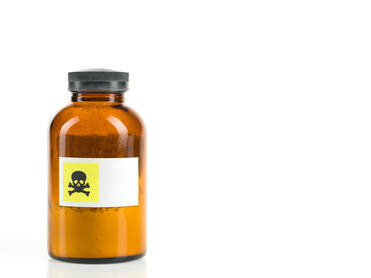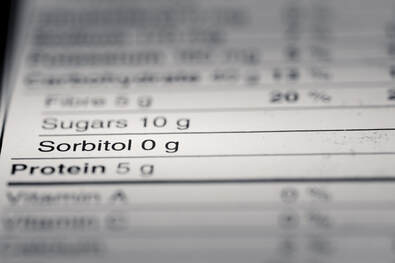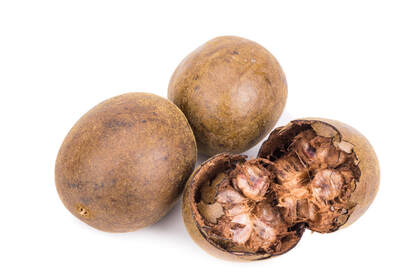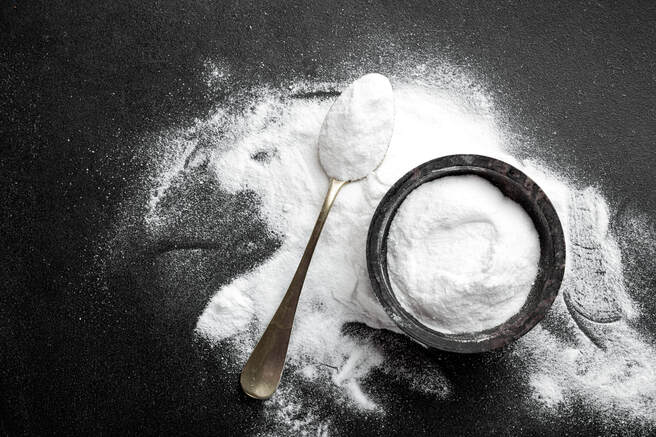|
In a world where unicorns fly, we consume unlimited quantities of a sweet substance with absolutely no health detriments. Alas, we do not live in that world. Everyone knows that inhaling sugar on a daily basis is bad for your health. Alternative sweeteners are quite popular and have been marketed for decades as the main method of satisfying a sweet tooth without increasing your caloric intake, blood sugars, and weight. But is this actually true? Dive with me deeper into the world of artificial sweeteners and find out if your spoonful of “sugar” is doing more harm than good. The degree to which issues may manifest from artificial sugar consumption varies from the type of product, quantity being consumed, and the person doing the consuming. The main concerns from researchers and health experts are:
There are varying degrees of ugly, so I broke them down into three different categories: artificial sweeteners (worst), sugar alcohols (bad), and “natural” sweeteners (meh). It’s a troublesome list and if you don’t feel like reading, here’s a quick cheat sheet for easy perusing.  ARTIFICIAL SWEETENERS Let’s start with the oldies but goodies, which you’ll often see at old greasy diners and cafes/restaurants. The most common name brands in America are:
Put bluntly, these products are straight-up toxins and certainly earn their name “artificial”. It varies, but these products often contain carcinogenic compounds, genetically modified ingredients, excitotoxins that are correlated with degenerative brain disorders, and cause unfavorable disturbances to the gut bacteria. For example, aspartame breaks down into methanol and formaldehyde at a heat ceiling of 86-95 degrees F. Guess what your body temperature is?...oh roughly 88 degrees F. What is formaldehyde? It’s that noxious smell in anatomy class used to embalm dead bodies. Yummy. Not surprisingly, there are many reported side effects from using these products (e.g. migraines, seizures, dizziness, tachycardia, etc.) despite the government categorizing it as GRAS (Generally Regarded As Safe). Research is now showing these substances may cause the bacteria in your gut to unfavorably shift, which ultimately leads to dysbiosis. Pssst…a little secret- obesity and weight gain has been associated with an unbalanced, gut bacteria (i.e. dysbiosis). This seems quite counterproductive if the very purpose of consuming these products is to lose weight, yet research is showing that the highest consumption leads to higher weight. Huh? If you’re diabetic I understand the imperative nature of keeping your sugar intake low. However, your body interprets the consumption of Diet Coke and juice as the same. You’re fooling your body…but not really. Regardless of caloric content, the body will release insulin in response to the perception of food intake. Incessant insulin release will likely cause insulin resistance or worsen existing insulin resistance (Type 2 Diabetes). If you haven’t noticed, we are in an unprecedented, insulin resistance epidemic with 50% of the country either pre-diabetic or full-blown diabetic. One has to wonder if this is partially due to the frequent usage of artificial sweeteners and their impact on key metabolic pathways. Lastly, all of these are 300-13,000 times sweeter than sugar which means your palette gets accustomed to a certain intensity. When tasting normal sugar or a dessert, it’s simply not zippy enough and consuming a large portion is easily accomplished. Hopefully, this is convincing enough to switch to an alternative form….  SUGAR ALCOHOLS (the “-ols”) Sugar alcohols have really grown in popularity because in general they are derived from food, though they are highly refined and often combined with artificial sweeteners. You can always recognize them on an ingredient list because the sugar alcohol ends in an “-ol”, with the exception of HSH. They tend to be roughly half the calories of regular sugar and are often added to products with the label “sugar free” or “no sugar added”. It’s a bit of a misnomer as they possess no ethanol and are perfectly acceptable for those avoiding alcohol. The most popular examples are:
The gastrointestinal system does not digest sugar alcohols well so it can have a laxative effect as well as cause gas, bloating, and diarrhea. In the case of Lactitol, it is derived from milk- so avoid if you have any issues with dairy products. Erythritol is mostly fermented with yeast and is the least likely to cause a laxative effect. Sugar alcohols do cause blood sugar to increase but less than sugar. Maltitol is the highest and does promote insulin release, but again, not to the same level as sugar. Surprisingly, some research shows xylitol may favorable change the microbiome in the gut. Score 1 for the sweet tooth! Most sugar alcohols are derived from genetically modified corn products which is a huge red flag. It’s not just the GMO food itself, but the additional toxins and side effects that come with the use of Roundup, its herbicide cohort. The chemical component of Roundup is glyphosate and we now know that the BT toxin in GMO foods and glyphosate both have serious detriments on the gastrointestinal system. For this reason alone, I would steer clear of any sugar alcohol that is not organic and/or non-GMO verified. Some brand examples that are organic and/or non-GMO are: Now Xylitol, Xylipure from Jarrow, and Swerve The Ultimate Sugar. (I have no affiliation with these products).  “NATURAL” SWEETENERS Stevia and Lakanto (monk fruit) fall into the category of natural sweeteners. These products are derived from plants and marketed as “squeaky clean” for your health. The marketing doesn’t tell you they are highly refined and thus easily contaminated with other ingredients which can cause problems. For example, Truvia is marketed as a Stevia product but the reality is the actual Stevia percentage is quite low and is predominantly Erythritol. Stevia and monk fruit are calorie-free, have the lowest insulin response on our list, and typically do not cause gastrointestinal distress (unless infused with inulin or sugar alcohol). The downside is they typically are tainted with other GMO ingredients such as sugar, maltodextrin, erythritol, etc. Be savvy when choosing a product. For Stevia, select a 100% organic product that has little added ingredients. Some decent brands are: Body Ecology Liquid Stevia, Trader Joe’s Stevia (organic), Now Foods Better Stevia, Planetary Herbals Stevia, and Sweetleaf Stevia. For Lakanto, it is 300 times sweeter than sugar so be mindful of quantity used. The best brands are: Body Ecology Lakanto, Saraya Lakanto, and Swanson Lo Han Guo Sweetener. As you can see, the best choices for a sweetener are likely Stevia and Lakanto. However, given the insulin response and the heightened sweetness of these products, I would encourage you to minimize the intake to no more than 1-2 times per day. Fake sugars are in everything so be an avid label reader. Consider weaning yourself off entirely. I try to never use these products and simply lower my total overall carbohydrate intake so I feel comfortable with 1-2 daily doses of honey. If you ever completely switch over to natural, you might be blown away years later by the sweetness level from a diet coke or an Atkins bar.
Been Splenda™ talking about this. :)
1 Comment
Caroline
6/26/2019 06:26:32 pm
This is absolutely brilliant! Thank you so much for the clear and concise way taught in your blog the ways in which to navigate sweeteners. I look forward to your next post.
Reply
Your comment will be posted after it is approved.
Leave a Reply. |
AuthorShannon is a registered dietitian and functional nutritionist with a penchant for provocative topics, almond butter, and local theater. Archives
November 2019
Categories
All
|
Proudly powered by Weebly


 RSS Feed
RSS Feed